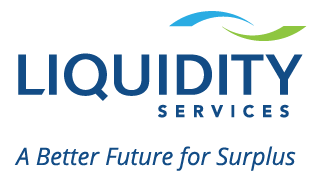Asset valuation is one of the most critical components of surplus asset management, yet many companies lack the time, resources, and market/industry expertise to do it accurately and thoroughly. This can cause trouble for companies when it comes time to develop risk management strategies and meet reporting and compliance requirements.
For this reason, many enterprises turn to a valuation partner to handle both the strategy and the details of the process. But how can you select the right partner for your business? It’s not enough for a potential provider to meet a few basic requirements. It must be able to go beyond those and be a true consultative presence that can combine your industry expertise with a transparent and comprehensive asset valuation program. This article will lay out the seven key criteria your valuation partner should meet.
1. Supplements Data with Expert Analysis
An experienced provider can use prior market and industry data to appraise your assets, but it should also be able to account for dealer markups, warranties, varying asset conditions, and other variables. With the above data, along with the ability to pull information on historical sales and open orders, an experienced provider will be able to give you an accurate valuation for any asset.
Expertise is key here. A valuation provider that has years of experience in different verticals will not just gather data points – it will give you actionable advice that will ensure you get the most out of each asset.
2. Uses Multiple Methods to Value Assets
When it comes to specialized or rare items, prior market data may not always be readily available. A superior provider will have other ways to find data for a valuation, such as calculating current value based on the original asset price and depreciation, using similar asset prices as a benchmark, and drawing industry connections to corroborate an appraisal with valuations for similar items.

A superior valuation partner will help you appraise specialized or unusual assets.
3. Provides a Comprehensive Asset Management Solution
Valuation is important, but it’s just one part of the reverse supply chain. Once an accurate valuation is obtained, your ideal partner should also be able to resell or redeploy your surplus assets in a timely and sustainable fashion.
The best valuation providers will offer the entire gamut of surplus asset management services and resources, like secondary marketplaces, sales and marketing teams, and a compliance department to mitigate all risks in the reverse supply chain.
4. Meets Tight Deadlines
Facility closures or business expansions sometimes leave you with a tight timeline to redeploy or resell assets. An experienced provider with a proven surplus asset management methodology will help you do everything in a short timeframe.
5. Committed to Transparency and Accountability
With stiff legal penalties for falsified or inaccurate valuations and reporting, you want to ensure your provider has an ironclad track record of ethical behavior. Make sure any potential partner is completely transparent with its processes, speaks openly about potential challenges ahead of time, and provides regular progress reports.
Before you select a partner, check to see if it has been verified by an independent body as a reliable appraiser and asset management partner. The most trustworthy partners will belong to respected industry organizations like American Society of Appraisers and the Royal Institution of Chartered Surveyors.
6. Understands How to Value Intangible Assets
In addition to physical assets, you may wish to have your intangible ones appraised as well. An experienced provider can also value your intangible assets, such as web domains, trademarks, customer lists, and patented technology. The best partners will use traditional and untraditional methods, like cash flow valuation and cost approaches, to value these assets.

Compliance with local, national, and international laws is critical when reselling assets.
7. Solves Your Trade Compliance Challenges
One of the most important value-added services a valuation partner can provide is mitigating compliance risks associated with surplus asset management. Compliance with local, national, and international laws and internal standards is critical for successful surplus asset management.
Many countries have laws restricting sales of certain assets. Additionally, assets with sensitive data need to be completely wiped before being sold to a new owner. A good partner will know the ins and outs of each locale’s legal structures and help you follow the laws to the letter.
Case Study: How Liquidity Services Met and Exceeded These Criteria For a Leading Manufacturer
A large manufacturer was reorganizing and decided to sell off one of its international facilities as part of the restructure. Knowing any potential buyers would want to see a valuation before making a purchase, the manufacturer reached out to Liquidity Services to provide one.
With its up-to-date proprietary database, Liquidity Services pulled transactional data from government and consumer sources and used it to accurately value the facility and the assets contained within it.
Within 10 days, Liquidity Services was able to overcome language barriers, international travel, and post-contract stipulations to deliver an accurate valuation well in advance of the agreed upon deadline. This gave the manufacturer more time to prepare for buyer follow-ups, which was key in eventually closing a sale.
Whether it’s asset valuation or the entire spectrum of surplus asset management, Liquidity Services has been a trusted partner for businesses in almost every industry. From valuation to redeployment and resale, Liquidity Services’ expert team can give your business the resources and expertise it needs to navigate the complicated world of surplus asset management and maximize total value in its reverse supply chain.



Comments are closed.